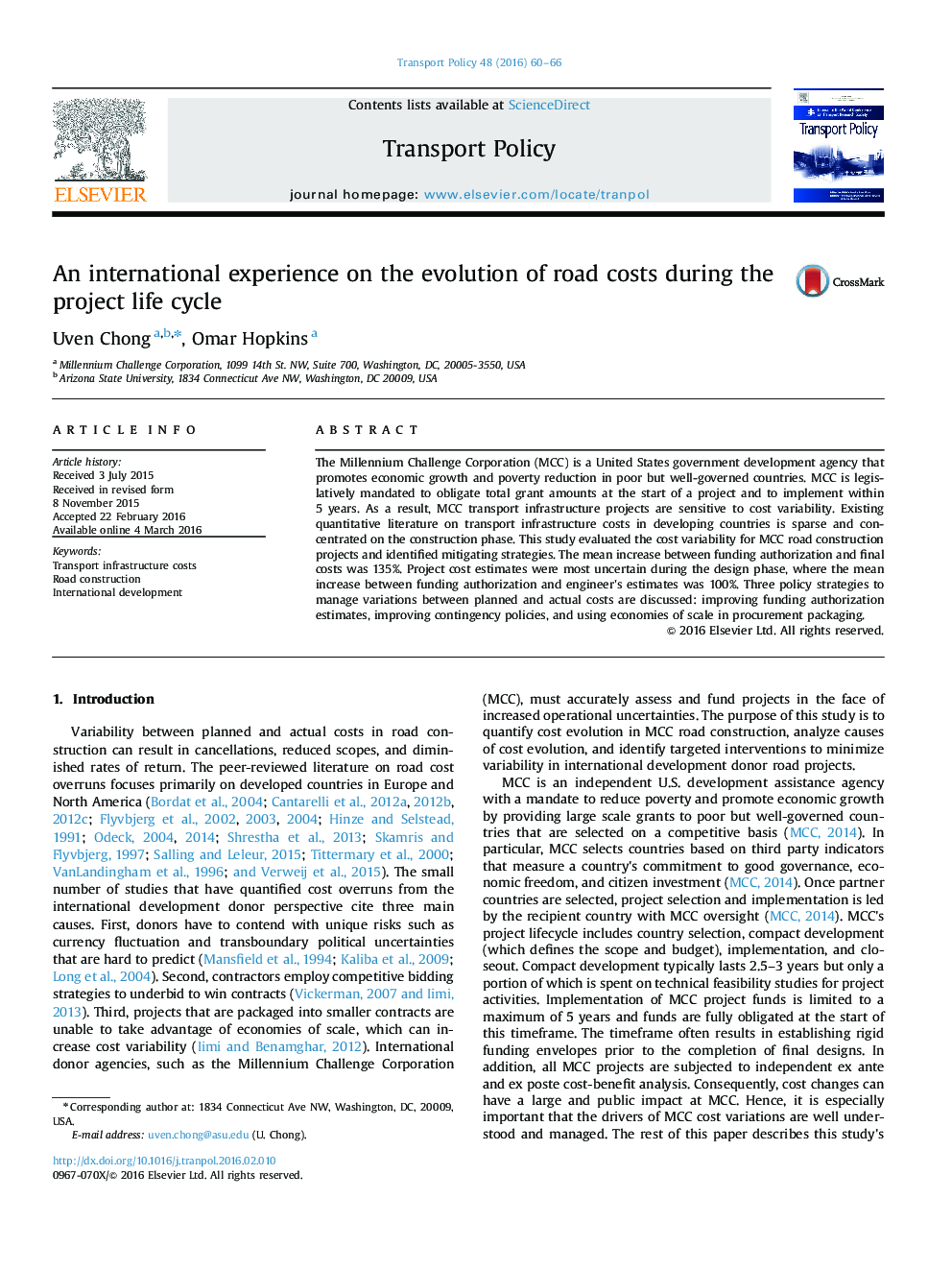| Article ID | Journal | Published Year | Pages | File Type |
|---|---|---|---|---|
| 1064714 | Transport Policy | 2016 | 7 Pages |
•We studied the evolution of roads costs at the Millennium Challenge Corporation.•The largest changes in cost estimates occurred during the project design phase.•Increasing the level of design reduces subsequent project cost increases.•Large projects have lower unit costs, smaller increases, and less cost variability.
The Millennium Challenge Corporation (MCC) is a United States government development agency that promotes economic growth and poverty reduction in poor but well-governed countries. MCC is legislatively mandated to obligate total grant amounts at the start of a project and to implement within 5 years. As a result, MCC transport infrastructure projects are sensitive to cost variability. Existing quantitative literature on transport infrastructure costs in developing countries is sparse and concentrated on the construction phase. This study evaluated the cost variability for MCC road construction projects and identified mitigating strategies. The mean increase between funding authorization and final costs was 135%. Project cost estimates were most uncertain during the design phase, where the mean increase between funding authorization and engineer's estimates was 100%. Three policy strategies to manage variations between planned and actual costs are discussed: improving funding authorization estimates, improving contingency policies, and using economies of scale in procurement packaging.
